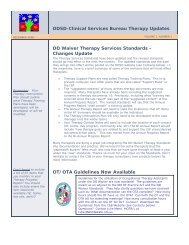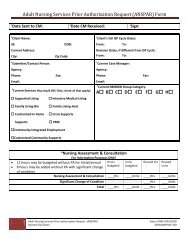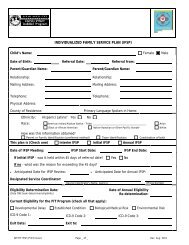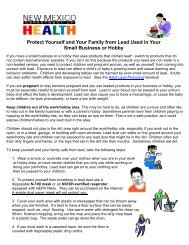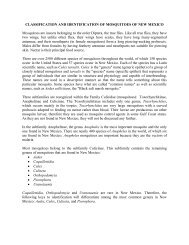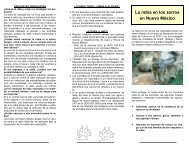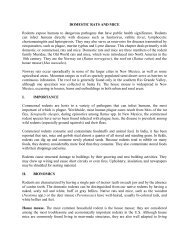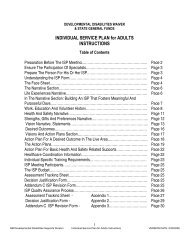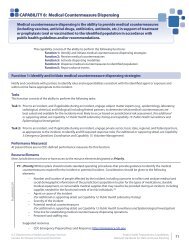A Brief Guide to Mold, Moisture, and Your Home - Virginia ...
A Brief Guide to Mold, Moisture, and Your Home - Virginia ...
A Brief Guide to Mold, Moisture, and Your Home - Virginia ...
- No tags were found...
Create successful ePaper yourself
Turn your PDF publications into a flip-book with our unique Google optimized e-Paper software.
MOLD BASICSW■ The key <strong>to</strong> mold control is moisture control.■ If mold is a problem in your home, you should clean upthe mold promptly <strong>and</strong> fix the water problem.■ It is important <strong>to</strong> dry water-damaged areas <strong>and</strong> itemswithin 24-48 hours <strong>to</strong> prevent mold growth.hy is mold growing in my home? <strong>Mold</strong>s are part of thenatural environment. Outdoors, molds play apart in nature by breaking down dead organicmatter such as fallen leaves <strong>and</strong> dead trees, butindoors, mold growth should be avoided. <strong>Mold</strong>sreproduce by means of tiny spores; the sporesare invisible <strong>to</strong> the naked eye <strong>and</strong> float throughoutdoor <strong>and</strong> indoor air. <strong>Mold</strong> may begin growing<strong>Mold</strong> growing outdoors onfirewood. <strong>Mold</strong>s come inmany colors; both white <strong>and</strong>black molds are shown here.indoors when mold spores l<strong>and</strong> on surfaces thatare wet. There are many types of mold, <strong>and</strong> noneof them will grow without water or moisture.Can mold cause health problems? <strong>Mold</strong>s are usually not aproblem indoors, unless mold spores l<strong>and</strong> on a wet ordamp spot <strong>and</strong> begin growing. <strong>Mold</strong>s have the potential <strong>to</strong>cause health problems. <strong>Mold</strong>s produce allergens(substances that can cause allergic reactions), irritants, <strong>and</strong>in some cases, potentially <strong>to</strong>xic substances (myco<strong>to</strong>xins).Inhaling or <strong>to</strong>uching mold or mold spores may causeallergic reactions in sensitive individuals. Allergic responsesinclude hay fever-type symp<strong>to</strong>ms, such as sneezing, runnynose, red eyes, <strong>and</strong> skin rash (dermatitis). Allergic reactions<strong>to</strong> mold are common. They can be immediate or delayed.<strong>Mold</strong>s can also cause asthma attacks in people with asthmawho are allergic <strong>to</strong> mold. In addition, mold exposure canirritate the eyes, skin, nose, throat, <strong>and</strong> lungs of both mold-2




